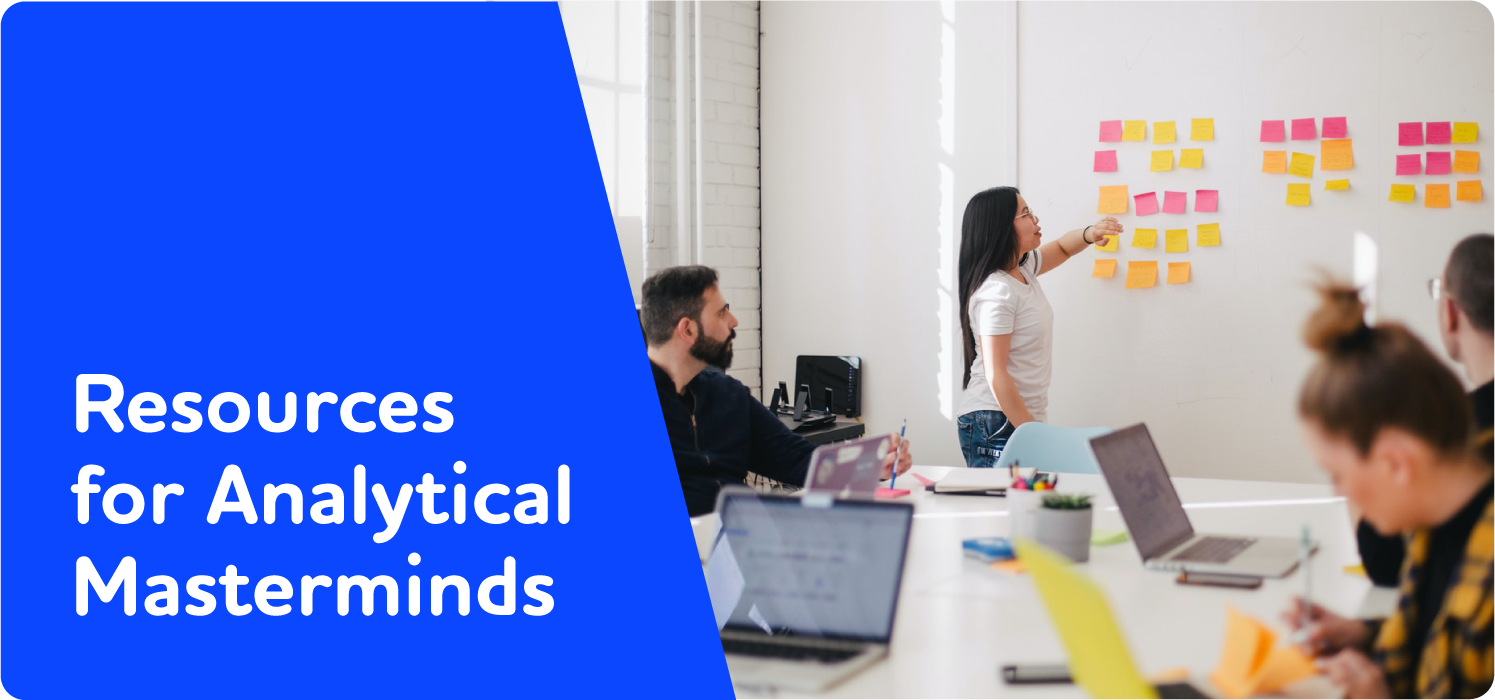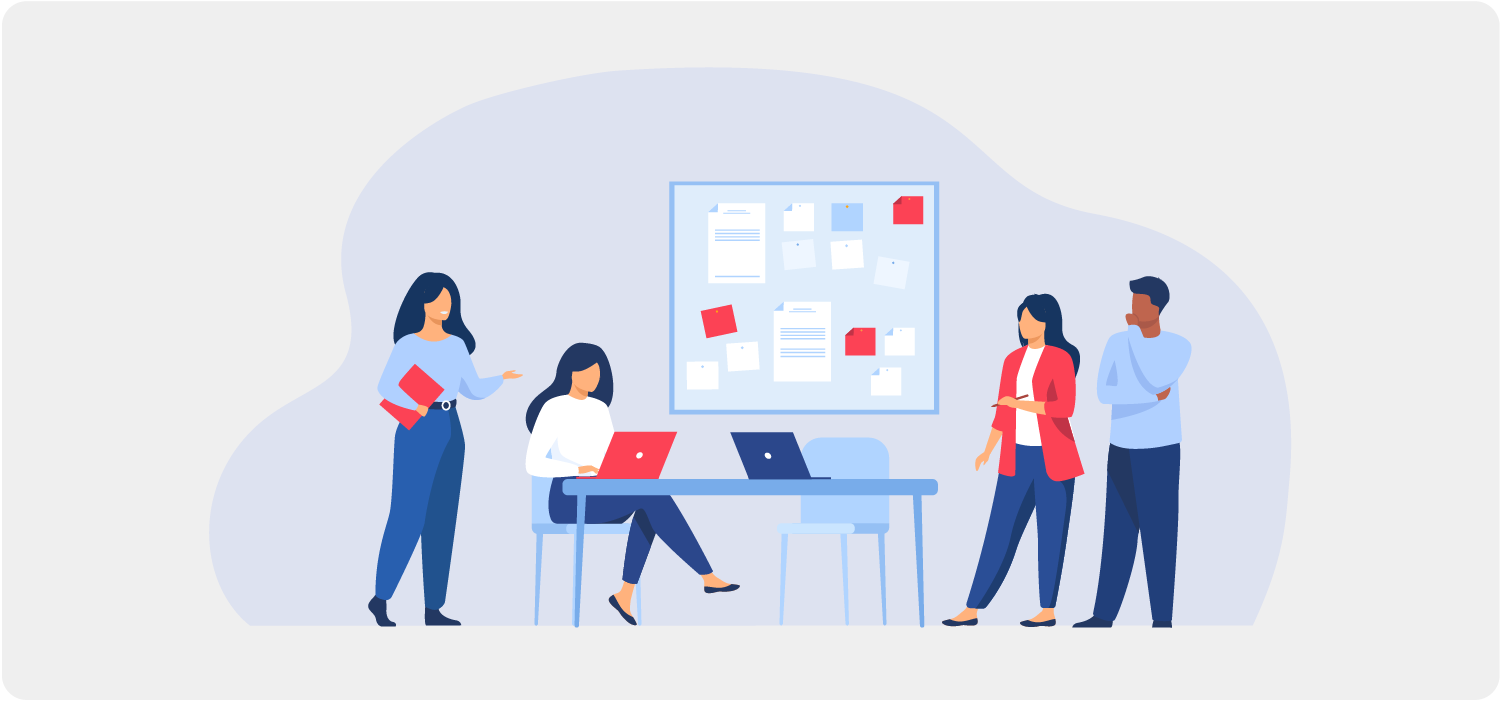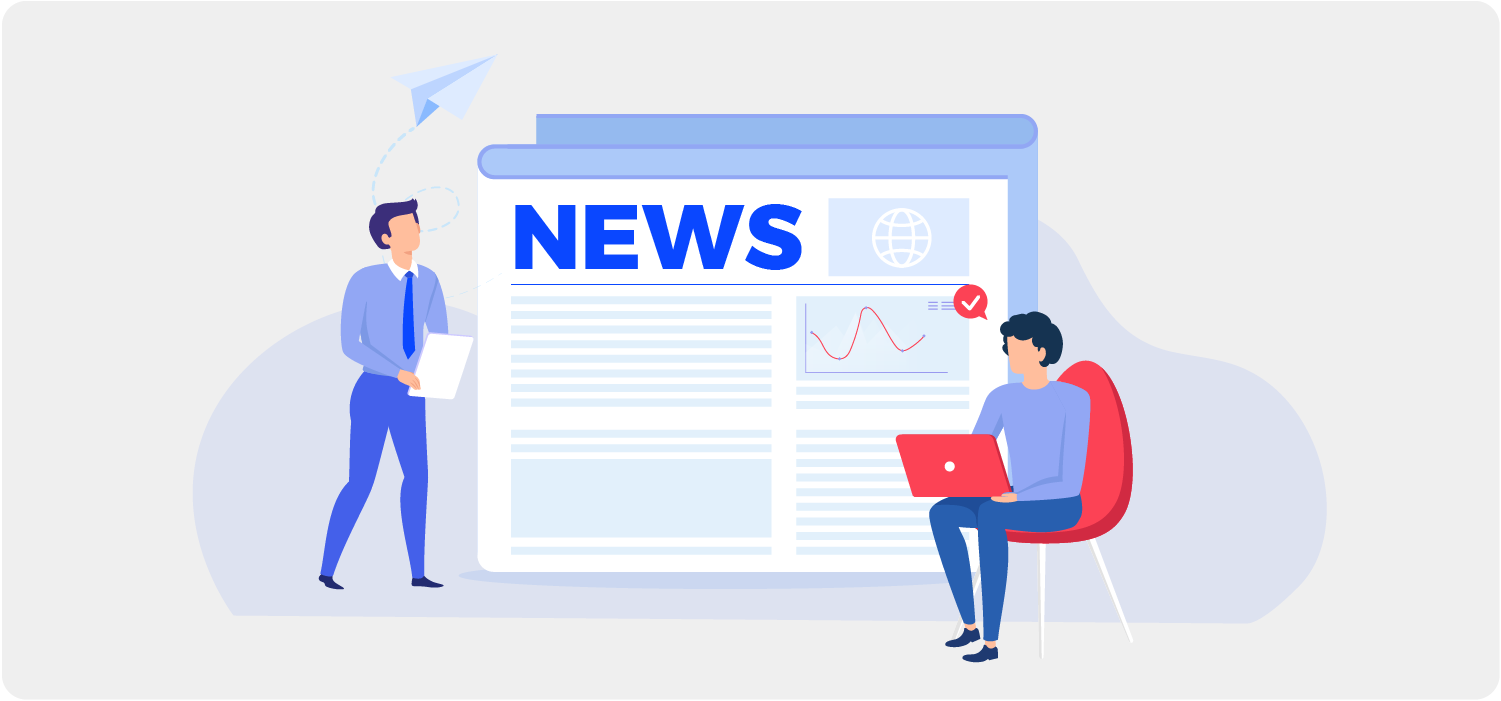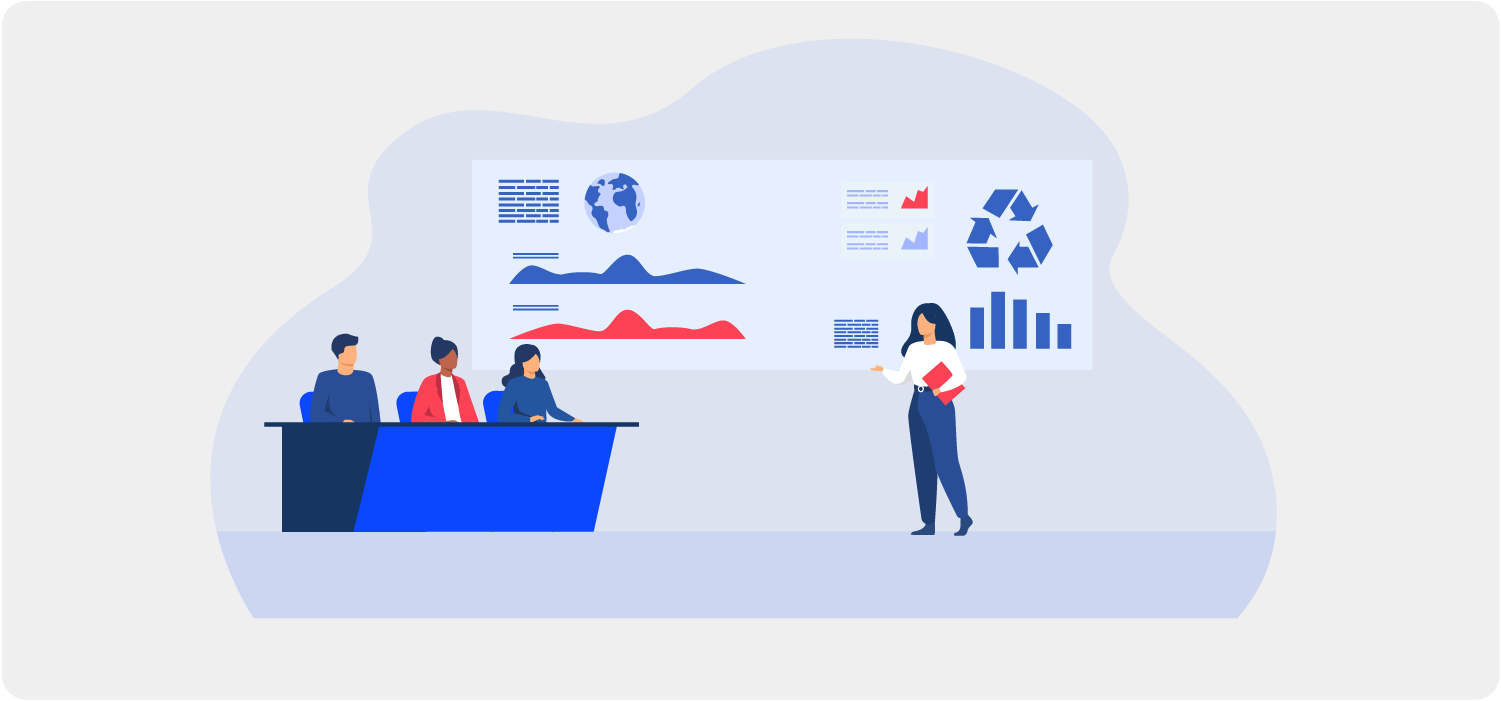RESOURCES FOR ANALYTICAL MASTERMINDS

On this page, you’ll find various curated resources to keep yourself up to date, entertained, and fulfilled as a STEM professional, PhD candidate, tech enthusiast or employer in a STEM field.
What is STEM? STEM stands for science, technology, engineering, and mathematics. Common jobs in these fields include data scientist, engineer or researcher, to name a few. What can you expect from this resource page?
|
All about upping your game with educational resources like links to archived publications, free programming courses, and extensive company-wide programs. |
|
|
Job hunting tips, PhD support and links to how you can show off your skills to your future employer. |
|
| Stay informed and connected with bite-sized news on STEM; PhD topics of your choice. | |
|
Recurring tech conferences, trade shows and summits from across the globe to look out for. |
|
|
Highlights of monthly STEM-related holidays. |
|
|
Must-listens to suit all tastes, from a scientific look on day-to-day issues, to insights from chemists on how beauty products are created. |
|
|
Must-reads for analytical masterminds. Dive into the man vs machine debate, or learn how the minds behind the internet and computers succeeded in bringing their ideas to life. |

1. LEARNING
-
archive.org: Need a book or a specific software? Look first on the Internet Archive. This non-profit library gives access to millions of books, movies, music, websites and more. It also provides users with the Wayback Machine, a way to browse history of billions of pages saved throughout time.
-
W3Schools.com: If you want to dabble in various programming languages like JavaScript, JQuery, Python, C#, or R, then W3School is a good free place to start.
-
DataCamp.com: You can join up Google, Deloitte, Intel, PayPal and 1600 more companies in using DataCamp’s training programs. Learn about non-coding essentials all the way up to data science and machine learning with this platform.
-
KhanAcademy.org: From pre-recorded intensive courses on algebra, calculus, computing, physics, chemistry and more, to live coaching. Young and old are welcome on this free learning platform.
-
Udemy: A high quality paid alternative with courses on topics ranging from web development, to complete Python courses. Offers over 100,000 online courses from expert instructors to study anywhere, anytime.
-
Coursera: A platform where you can build skills with courses, certificates, and degrees online from excellent universities and companies. It also offers free learning resources for universities.
-
OpenUniversity.edu: Considering a career switch or want to dive into a new domain? Open University could be for you with their 2 million graduates under their belt, online platform, and worldwide access. You can earn a master’s degree or higher at your pace in anything from technology management, to cybersecurity, mathematics, computing or engineering.

2. WORK
-
Findaphd.com: The world’s largest database of PhD projects and programs. They also provide extensive information on the application process, and organize some of the UK’s busiest postgraduate study events.
-
NameCheap: Making your own website can be an asset in highlighting your skills. For that, you’ll need a domain and hosting for your custom portfolio. NameCheap is an affordable entry point.
-
GitHub: Develop your own projects or contribute to larger ideas while showing off your profile.
-
Kaggle: More data-science oriented? Then perhaps Kaggle is for you. There, you’ll find all the code and data you need for your work, using public datasets and notebooks to take over any analysis in no time.
-
Vorsers Jobs: Looking for a job in a STEM field? Vorsers has tons of tech jobs, PhD positions, and more. If you’re an organization looking for STEM professionals, you can post your own on Vorsers, and PhD positions are published for free!

3. NEWS
-
TED Technology: Get updated and entertained on key topics given by various speakers, from ethical questions in technology, to the promises of quantum computers.
-
CNET: This American media website publishes reviews, news, articles, blogs, podcasts, and videos on technology and consumer electronics globally.
-
TLDR News: A daily newsletter with links and short reads of the most interesting stories in tech, science, and coding.
-
WIRED: A monthly American magazine, published in print and online editions that focuses on how emerging technologies affect culture, the economy, and politics.
-
The Verge: A technology news website offering in-depth reporting, breaking news coverage, product information, and community content in various sectors like science, culture, cars and tech.
-
TechCrunch: Want to stay in touch with the tech startups so you’re not out of the loop at networking events? Then TechCrunch, an online newspaper focusing on high tech and startup companies could be for you.

4. EVENTS
From in-person workshops and summits, to digital conference and seminars, there’s always something to attend. Here are some highlights of events you can look forward to every year:
- AI & Big Data Expo Global (England): A showcase of next-generation technologies and strategies from the world of Artificial Intelligence & Big Data. An opportunity to explore and discover the practical and successful implementation of AI & Big Data in driving forward your business in 2021 and beyond.
-
SaaStock (Virtual): This conference, focused on Software as a Service (SAAS), is where founders, executives, investors and startups meet. It includes a virtual exhibition floor, matchmaking sessions, and actionable keynotes, to name a few. Keep track of how other companies are making changes happen in the industry.
-
World Summit AI (Netherlands): The world’s leading and largest AI summit gathering the global AI ecosystem of Enterprise, BigTech, Startups, Investors and Science. Spark new partnerships, investment projects, and tech collaborations as you learn from masters in their fields in this recurring conference.
-
Women in Data Science Conference (California): This event aims to inspire and educate data scientists worldwide, regardless of gender, and to support women in the field. It offers a yearly conference, datathon, podcast, workshops and more.
-
Adobe Summit (Virtual): A bridge between analytics and content creation, mixed with marketing trends and digital commerce. Learn best practices from renowned CEOs and engage with exceptional minds.
- ACE! Conference (Poland): Every edition brings something different in terms of tech trends. Some examples of what past years brought include the merging of Agile Software Development and Product Design & Management into one conference, and a discussion on human centered design for the elderly.
For even more tech events, Bizzabo has collected a list of hundreds of conference, trade shows, summits and seminars. You can find an extensive table of upcoming and recurring physical and digital events here.

5. CALENDAR
A little something to celebrate every month.
-
January 29th: National Puzzle Day – A perfect day to do some brain exercises, whether it’s a Sudoku, jigsaw, or crossword! Developed to encourage people of all ages to participate in puzzles more.
-
February 11th: International Day of Women and Girls in Science – An opportunity to promote full and equal access to and participation in science for women and girls.
-
April: Mathematics Awareness Month – Held each year to increase the visibility of mathematics as a field of study and to communicate the power and intrigue in mathematics.
-
May: Physical Fitness, Sports and Inventors Month – Designated to promote healthy lifestyles and improve quality of life. This month also highlights inventors everywhere, dead and alive, and encourages everybody to get inventive.
-
June 23rd: International Women in Engineering Day – Celebrates the outstanding achievements of female engineers throughout the world. Also meant to raise the profile of women in engineering and focus attention on career opportunities available to women in this industry.
-
July 20th: Moon Landing – A celebration of the Apollo 11 spaceflight that first landed humans, Neil Armstrong and Buzz Aldrin, on the Moon on July 20, 1969.
-
August 19th: National Aviation Day – Orville Wright’s birthday, one of two Wright brothers generally credited with inventing, building, and flying the world’s first successful motor-operated airplane. This day celebrates progress in flying machines.
-
September 12th: National Video Games Day – One day after Atari’s release on September 11, 1977, Video Games Day celebrates history. Tag along by reliving arcade classics, playing with friends, or treating yourself to a new game!
-
October 4th: Sputnik Launch – on October 4, 1957, the Soviet Union launched the first artificial Earth satellite, Sputnik 1, into an elliptical low Earth orbit.
-
November 8th: National STEM Day – A celebration of STEM fields that pushes society forward. Dedicated to helping educational programs find fun and engaging ways to teach STEM to students.
-
December 5th: Computer Science Education Week – A program dedicated to inspiring young children to take interest in computer science. Held in recognition of computing pioneer Admiral Grace Murray Hopper, born on December 9th, 1906.

6. PODCASTS
For some portable, entertaining, and purposeful way to kill dead time. You can learn about any topics straight from the most passionate people around. Some suggestions to add to your playlist:
-
Science Vs: A perfect mix of scientific facts and entertainment. These podcasts dive into topics like the science behind a man dying twice, lab rats, or behind-the-scenes of Instagram fads.
-
The Math Dude Quick and Dirty Tips to Make Math Easier: A 300 episodes series where a problem-solving expert gives us insights on how mathematics works in the real world, like how it takes us to space.
-
IRL – Online Life Is Real Life: Brings you stories where real life intersects with the internet. From moral dilemma like profit and privacy, or 5G access and implications, this series is sure to make you think.
-
Exponential View: How AI and other exponential technologies are transforming business and society. Examples include self-driving cars, using AI to decentralize organizations, and building better cities.
-
Beauty Brains: A collection of hundreds of podcasts dedicated to the science behind beauty products and routines, provided by real chemists.
-
99% Invisible: Learn about the power of design and architecture. Perfect for (aspiring) engineers, this podcast looks at design principles that are behind nearly every man-made things, but are 99% invisible.
-
.Future: This Microsoft-sponsored podcast talks about technologies and industries that will define the next decade and beyond.
-
Grinding Gears: This podcast series is a top educational resource provided by real engineers to help you understand what it’s like to work professionally in engineering.

7. BOOKS
Here’s a compilation of reads that anyone who’s a bookworm, STEM fan, researcher, or simply curious, will enjoy:
-
Hello World by Hannah Fry: Artificial intelligence and automation are involved in things we do every day. This book explores the pros and cons of how algorithms are used, how badly, and how we plan to use them in the future. It makes you question your own side when it comes to man vs machine.
-
An Impossible Invention by Mats Lewan: Cold fusion, thought to be physically impossible, promised zero-emission vehicles with unlimited mileage and solutions to the climate crisis in a compact and inexhaustible format. In 2011, Italian inventor Andrea Rossi demonstrated something that seemed to be cold fusion – the E-Cat. Too good to be true? To this day, not everyone believes Rossi’s claims. Through interviews with the inventor, the author looks into the weird and compelling life of a man promising the world.
-
This is Going to Hurt by Adam Kay: This book puts you in the shoes of British student Adam Kay and the challenges he faces as junior doctor, from laughter to stressful life-and-death moments. This emotional read puts life in perspective, and makes you think about how amazing healthcare workers truly are, but also how much the industry needs radical changes.
-
Inferior by Angela Saini: No less a scientist than Charles Darwin asserted that women were at a lower stage of evolution, and for decades, scientists—most of them male—claimed to find evidence to support this. Inferior is a compilation of current scientific knowledge that brings to light various concepts like the gender war, bias in science, and how science got women wrong.
-
The Innovators by Walter Isaacson: This book is an indispensable guide to how innovation really happens. It brings revealing stories behind the people who created the computer and the internet. What were the talents that allowed certain inventors and entrepreneurs to turn their visionary ideas into disruptive realities? What led to their creative leaps? Why did some succeed and others fail?
Want more blog posts, events and other STEM resources? Keep an eye out on our social media. Are you an analytical mastermind? Bookmark Vorsers for all your STEM job needs and curiosities.
Follow our Vorsers community op LinkedIn:

